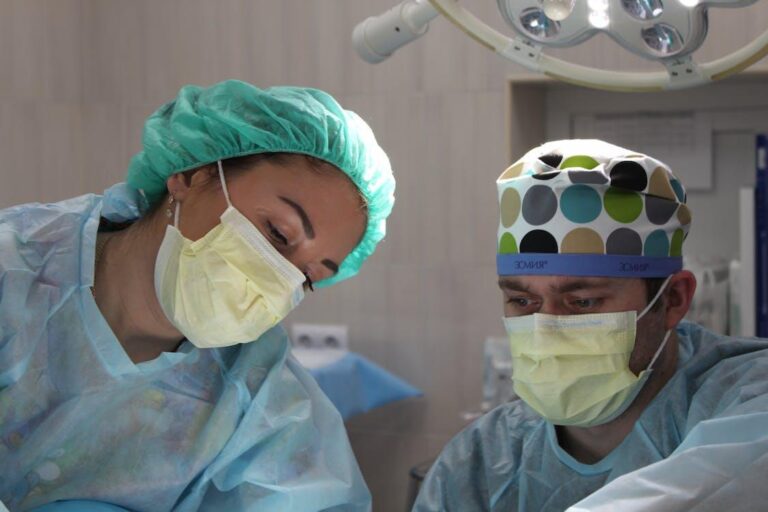Nurses stand at the forefront of healthcare, embodying the essence of care and compassion in the medical field. They are not just caregivers but are the backbone of healthcare systems worldwide. Their roles extend far beyond basic patient care, touching every aspect of healthcare, from patient advocacy to innovative practices. In exploring the reasons why nurses are indeed the heart of healthcare, we uncover the multifaceted nature of this noble profession and its pivotal impact on health outcomes.
Emotional Support and Patient Care

One of the most defining aspects of nursing is the provision of emotional support and patient care. Nurses often spend more time with patients than any other healthcare provider, placing them in a unique position to offer comfort and understanding. This emotional support is not just a byproduct of their duties; it is a critical component of patient recovery and overall well-being. Nurses are trained to recognize the emotional needs of their patients and respond with empathy and sensitivity. Their ability to connect with patients on a personal level, to listen and offer reassurance, can make a significant difference in a patient’s hospital experience and recovery process.
Advanced Skills through Education
The nursing field is continually evolving, and nurses must keep pace with the latest medical advancements and techniques. This is where education programs play a crucial role. These programs equip nurses with advanced skills and knowledge, enabling them to take on more complex roles in healthcare. Nurses who have undergone MSN education programs often emerge as leaders, capable of making informed decisions and implementing cutting-edge care practices. They are not just executing prescribed treatments; they are actively involved in developing and refining those treatments. This advanced training reflects in the quality of patient care, ensuring that nurses are well-prepared to handle the challenges of modern healthcare.
Advocacy for Patients
Nurses serve as vital advocates for their patients. They are often the ones who voice patient concerns to other healthcare professionals, ensuring that each patient’s needs and preferences are respected and met. Their advocacy extends from the bedside to the broader healthcare system, where they work to implement policies that benefit patient care and well-being. Nurses understand the vulnerabilities of their patients, especially in complex healthcare environments, and strive to ensure that every patient receives the best possible care. Their role as advocates is a testament to their commitment to patient-centered care.
Critical Role in Patient Safety

Patient safety is paramount in healthcare, and nurses are crucial in maintaining this safety net. They are the ones who frequently monitor patients, observing changes in conditions and responding swiftly to prevent complications. Nurses are trained to detect early signs of deterioration and take immediate action, which can be life-saving. Their vigilance and attention to detail play a significant role in preventing medical errors and ensuring that patients receive safe and effective care. This aspect of nursing is especially critical in high-risk environments like intensive care units, where the stakes are incredibly high.
Health Education Experts
Beyond their role in direct patient care, nurses are also educators. They provide patients and their families with vital information about managing their health, understanding their conditions, and navigating the healthcare system. This education is crucial in empowering patients to take an active role in their own care. Nurses break down complex medical jargon into understandable language, helping patients to make informed decisions about their treatment options. This role of nurses as educators extends beyond individual patient interactions to community health education, where they contribute to public health initiatives and disease prevention campaigns.
Frontline in Healthcare Emergencies
In times of crisis, nurses demonstrate their irreplaceable role as frontline responders in healthcare emergencies. Whether it’s a global pandemic, a natural disaster, or a local emergency, nurses are often the first to respond, providing critical care under challenging and sometimes dangerous conditions. Their ability to adapt quickly, think on their feet, and provide compassionate care under pressure is nothing short of heroic. Nurses’ presence during these critical moments not only saves lives but also provides a sense of stability and hope to both patients and their communities. Their courage and commitment in the face of emergencies underline their indispensable role in the healthcare system.
Innovators in Healthcare

Nurses are not just implementers of healthcare; they are innovators. In their day-to-day roles, they constantly find ways to improve patient care and efficiency in healthcare delivery. This can range from developing new nursing practices to participating in research that shapes future healthcare policies. Nurses bring a practical, hands-on perspective to healthcare innovation, ensuring that new ideas and technologies are applicable, efficient, and most importantly, patient-centered. Their contributions often lead to significant advancements in healthcare, making them invaluable players in the evolution of medical care.
Interdisciplinary Collaboration
Nursing is a collaborative profession. Nurses work closely with a range of healthcare professionals – from doctors and specialists to therapists and support staff – to ensure comprehensive patient care. Their role in these interdisciplinary teams is vital; they act as the linchpin that holds the team together, ensuring effective communication and coordination of care. This collaborative approach ensures that patient care is holistic, addressing all aspects of a patient’s health and well-being. Nurses are adept at navigating these complex interactions, advocating for their patients’ best interests in multi-disciplinary teams.
Enduring Commitment to Learning
The field of nursing requires a lifelong commitment to learning. With the ever-evolving nature of medicine and healthcare, nurses must continuously update their knowledge and skills. This commitment to ongoing education ensures that nurses stay at the forefront of the latest medical practices and technologies, allowing them to provide the best possible care to their patients. Nurses often pursue additional certifications, attend workshops, and engage in professional development activities, demonstrating their dedication to their profession and their patients.
The Emotional Pillar of Healthcare Facilities

Beyond their clinical responsibilities, nurses serve as the emotional pillars in healthcare facilities. They provide support and comfort not only to patients but also to their families and colleagues. The healthcare environment can be stressful and demanding, and nurses often act as a source of strength and stability. Their ability to empathize and provide emotional support creates a more compassionate and caring atmosphere, which is crucial for both patient recovery and staff morale. Nurses’ emotional labor, often unnoticed, is a cornerstone of the healthcare experience.
Conclusion
In conclusion, nurses are undeniably the heart of healthcare. Their roles extend far beyond bedside care, encompassing patient advocacy, education, innovation, collaboration, and emotional support. Nurses’ unique blend of skills, knowledge, and compassion makes them indispensable in the healthcare system. They not only ensure the smooth functioning of healthcare facilities but also significantly contribute to the well-being and recovery of patients. Recognizing the multifaceted role of nurses is essential in understanding and appreciating their invaluable contribution to healthcare. As we continue to face new healthcare challenges, the importance of nurses cannot be overstated. They are the unsung heroes, the emotional anchors, and the relentless advocates in the world of medicine, truly embodying the heart of healthcare.

